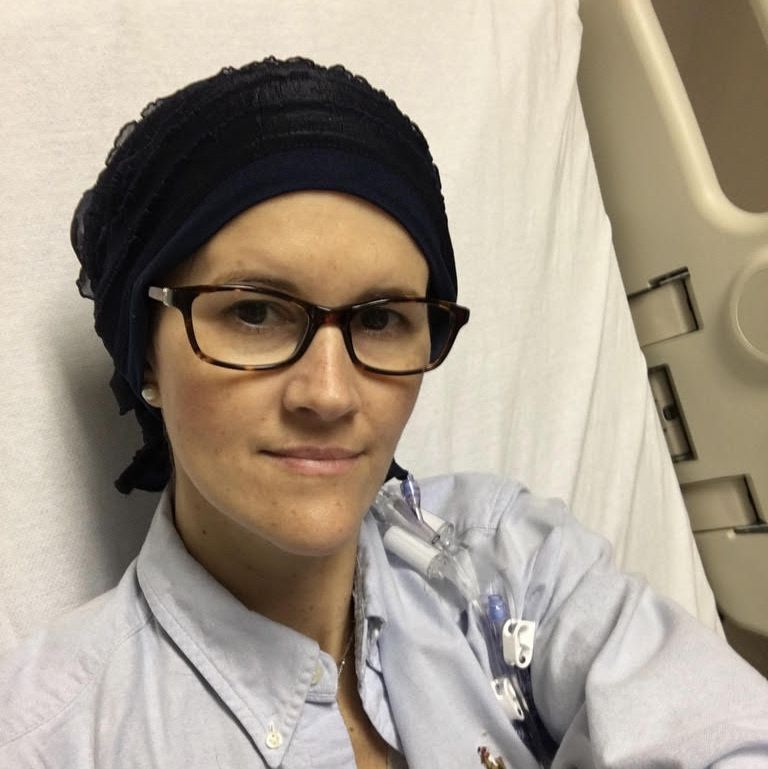From Women’s Health:
My name is Rachel Bradbury and I’m a wife, mother of three, and volunteer worker living in Houston, Texas. Four years ago, at the age of 41, I went in for my second routine mammogram and was subsequently diagnosed with breast cancer and ovarian cancer. I had a BRCA gene mutation passed down from my dad’s side of the family, which put me at higher risk of developing both of these types of cancer, among many others, at a younger age. After 13 months of treatment at MD Anderson, I was cancer-free.
But about a year and a half later, my ovarian cancer came back. Because my cancer was metastatic (meaning it had spread to other parts of my body), it was terminal. This meant I could still continue treatment to potentially live longer, but in the end, my cancer was not curable.
Before the novel coronavirus outbreak hit, my life was relatively “normal,” aside from the fact that I was walking around with terminal cancer. I took care of my kids and worked as a volunteer at MD Anderson advocating for cancer patients, and with a nonprofit called Ovarcome, which aims to spread the word about ovarian cancer and provide financial support for people who can’t afford treatment.
Up until a few days ago, I visited my oncologist once a month for a check-up and I took a daily chemotherapy pill. My blood cell counts aren’t as low as they’d be with traditional chemotherapy, but they’re still much lower than the average person’s. Because of this, my body is not strong enough to fight off infection.
This puts people like me in immunocompromised territory, as does my prior cancer treatment, since I have some lung scarring where I received breast radiation. So as an immunocompromised person, I’ve always had to think about where germs could be and plan my life accordingly.
My message is simple: Social distancing doesn’t work unless everyone does it. I say this fully recognizing that there are a huge
number of people who make their living paycheck to paycheck by working
outside of their home or by relying on customer traffic. I don’t have an
answer to how we can deal with this, and I truly wish we did. What I do
know is that the sooner we stop the spread of this virus, the sooner we
can all get back to our “normal” lives.
If you’re antsy to get out of your house, go give blood. There is a severe blood shortage, and all other health emergencies aren’t on hold just because of a new virus. Otherwise, please stay home.
Story source: Women’s Health.
Featured image credit: Rachel Bradbury via Women’s Health.
